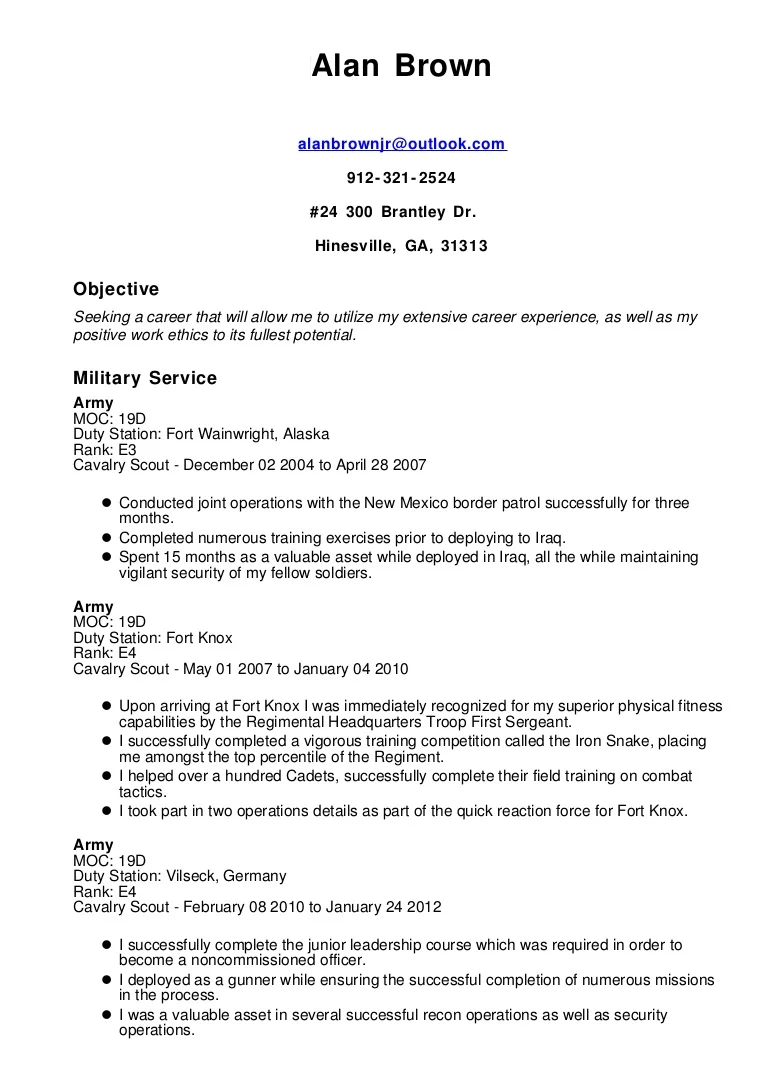
{dialog-heading}
· Words such as "exquisite," "outstanding," or "interesting" don't have a place on your resume. Every phrase you use should point to a specific skill or accomplishment. Otherwise, it is just a distraction. Stick to the facts, and keep your tone simple and focused. Misspellings or Grammatical Errors · Resumes are appropriately written in first person implied. This means that not only should you not use “I,” you should not use other personal pronouns such as me, my, we, our, etc., either. I also received feedback about “missing” articles—words like “a,” “an.”, “the.” These words are not missing; they are intentionally left out! · Therefore, we tapped a group of HR and resume experts to give us the inside scoop on the 21 words and terms to never include in your resume. Scan your CV to make sure you're not guilty of including these red-flagged terms: 1. Unemployed "Your employment dates already show if you're unemployed - you don't need to highlight it," says Hichens. 2

Post navigation
· Create a traditional resume full of jargon and buzzwords like "Results-oriented professional with a bottom-line orientation" and "Meets Is Accessible For Free: False · While it's perfectly reasonable to use "I" and "me" in a cover letter, your resume is different. If you started using "I", you would have to include it so many times that it would become annoying to the reader. In the US it is generally recommended that personal pronouns be completely omitted. Your second example appears more blogger.coms: 1 · You’re certainly not the first person to ask this. Your resume should never be written in third person. Use first person, but leave out the pronoun “I.”. For example, if you’re an administrative assistant, instead of saying “I coordinated travel for senior leadership,” simply say “Coordinated travel for senior leadership Estimated Reading Time: 3 mins

MORGAN HUNTER
· 4 Types of Words and Phrases You Should Not Use in Your Resume Hiring managers are experienced enough to easily identify these 4 types of words which offer no value to your resume. In fact, it could send your resume to the trash bin. 1. Buzzwords · While it's perfectly reasonable to use "I" and "me" in a cover letter, your resume is different. If you started using "I", you would have to include it so many times that it would become annoying to the reader. In the US it is generally recommended that personal pronouns be completely omitted. Your second example appears more blogger.coms: 1 · You do not want to appear vague in your resume. Hiring managers are tired of hearing clichéd words like “team player” and “hard worker.” Avoid these phrases at all cost. Include words and phrases that explain specifically what you accomplished in your previous jobs. Use action words

· Create a traditional resume full of jargon and buzzwords like "Results-oriented professional with a bottom-line orientation" and "Meets Is Accessible For Free: False · Words such as "exquisite," "outstanding," or "interesting" don't have a place on your resume. Every phrase you use should point to a specific skill or accomplishment. Otherwise, it is just a distraction. Stick to the facts, and keep your tone simple and focused. Misspellings or Grammatical Errors · You do not want to appear vague in your resume. Hiring managers are tired of hearing clichéd words like “team player” and “hard worker.” Avoid these phrases at all cost. Include words and phrases that explain specifically what you accomplished in your previous jobs. Use action words

· 4 Types of Words and Phrases You Should Not Use in Your Resume Hiring managers are experienced enough to easily identify these 4 types of words which offer no value to your resume. In fact, it could send your resume to the trash bin. 1. Buzzwords · Resumes are appropriately written in first person implied. This means that not only should you not use “I,” you should not use other personal pronouns such as me, my, we, our, etc., either. I also received feedback about “missing” articles—words like “a,” “an.”, “the.” These words are not missing; they are intentionally left out! · Therefore, we tapped a group of HR and resume experts to give us the inside scoop on the 21 words and terms to never include in your resume. Scan your CV to make sure you're not guilty of including these red-flagged terms: 1. Unemployed "Your employment dates already show if you're unemployed - you don't need to highlight it," says Hichens. 2
No comments:
Post a Comment